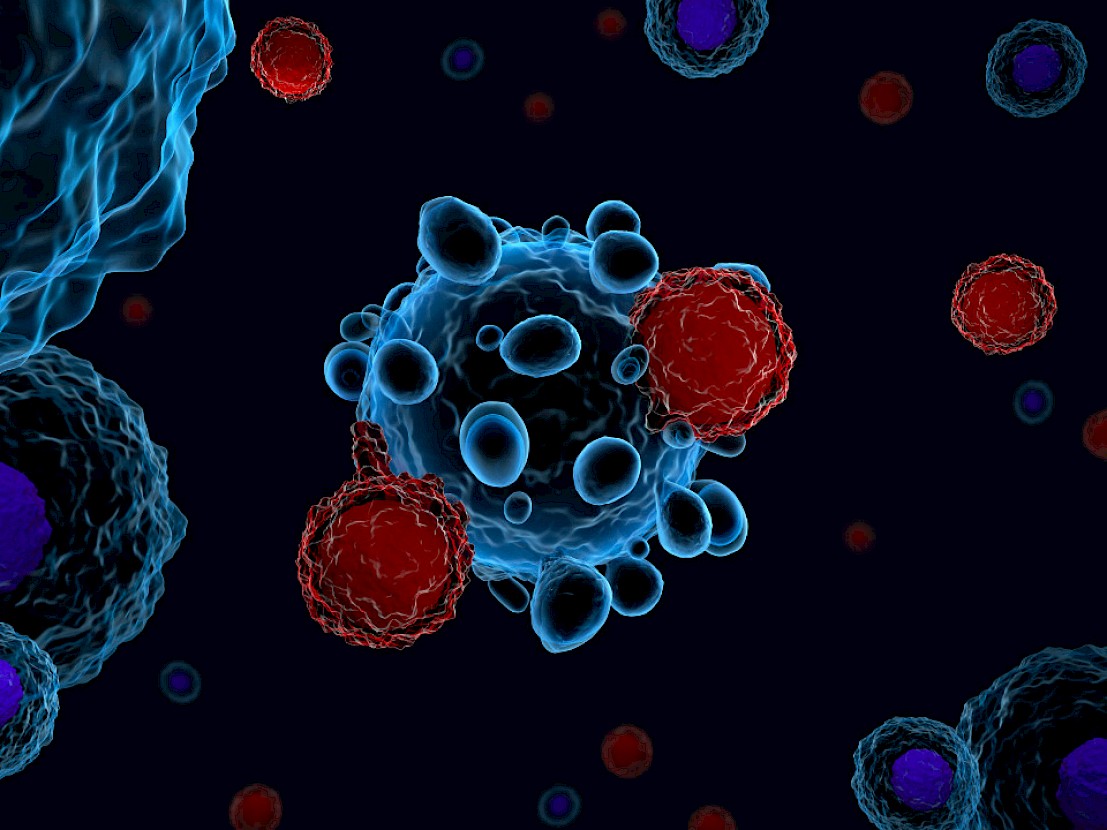T cell homing in cancer immunotherapy: challenges and opportunities

Cancer immunotherapy is a way of treating cancers by harnessing the patient’s own immune system to kill cancer cells. One type of cancer immunotherapy called chimeric antigen receptor (CAR) T-cell therapy involves taking patients’ T-cells, retargeting them to molecules on cancer cells, stimulating cell division to generate large numbers and putting them back into the patient. For leukemias and lymphomas, CAR-T therapy targeting a molecule called CD19 represents the most promising breakthrough in the past decade with 40 - 50% of lymphoma patients with a poor prognosis having a complete and long-lasting response. However, the response rate of CD19-CAR-T therapy in other blood cancers with a poor prognosis can be as low as 25%. In solid cancers such as pancreatic cancer, CAR-T response rates are as low as 17%.
Our work studying how T cells detect and infiltrate cancers using preclinical models has shown that L-selectin expression by cancer specific T-cells is essential to restrict the growth of solid and disseminated cancers. These studies have revealed a strategy for increasing the efficacy of T cells by enhancing expression of L-selectin Boosting the cancer-destroying ability of killer T-cells - News - Cardiff University. We are currently testing whether L-selectin can be used to modify CAR-T cells to broaden their use in the clinic.
Professor Ann Ager, MA, PhD, FLSW, Professor of Cellular Immunity and Immunotherapy, Division of Infection and Immunity, School of Medicine and Systems Immunity Research Institute, Cardiff University, Cardiff, UK.

Ann gained a PhD from Cambridge University studying inflammatory responses in vascular endothelial cells. After training in microvascular biology with Professor Judah Folkman in Boston, she began her life-long interests in high endothelial venule (HEV) blood vessels and T cell trafficking in health and disease as a postdoctoral fellow with Professor Bill Ford at the University of Manchester. Ann gained an MRC Senior Fellowship before moving to a Principal Investigator (PI) position at the MRC National Institute for Medical Research in London where she began working on the T cell homing molecule L-selectin/CD62L. Ann moved to Cardiff University as Reader and was awarded a personal chair in 2018 and elected to the Learned Society of Wales in 2020. Since moving to Cardiff, Ann’s research has focussed on T-cell trafficking in virus infection, cancer and, more recently, in Alzheimer’s disease.
As Chair Forum and a Trustee of the British Society for Immunology (BSI) and Council member of the International Union of Immunological Societies (IUIS), Ann is an advocate for Immunology to governments and other policy makers. She has acted as consultant and advisor to expert committees for the Welsh Government, the European court of law and pharmaceutical industries. Ann is also Chair of the BSI-National Cancer Research Institute (NCRI) alliance which brings together immunologists and oncologists who research, develop and use cancer immunotherapies.
Attending lectures
The lecture will be preceded by a short presentation from a CSAR PhD Award Winner.
Accelerating Cognitive Rehabilitation in Neurosurgery with the Connectome
Anujan Poologaindran, Department of Psychiatry, University of Cambridge
Thank you for your interest in CSAR and its programme. If you would like to help us maintain our activities at their current level, you can make a donation to CSAR here, via PayPal or a bank card. Your gift will by default go into our general income fund; if you would like it to be used for a specific purpose such as the PhD Students Awards scheme, please let us know at info@csar.org.uk. CSAR is a registered charity run by volunteers.